We are still working with this site. Plaese, check the changes regularly. 
Ändra den här texten genom att klicka på "Redigera" |
Key fronts
Organ and strung keyboard instrument makers commonly until the beginning of the 19th century furnished the key fronts of their respective instruments with decorations made of leather or, which was most usual, of pressed paper, one mark for each key through the whole compass. We call them key fronts.
_2.png)
The praxis of using key fronts was not Swedish but was probably brought here by German organ builders. At least here in Sweden the workshops designed and used the key fronts so that they mirrored the own workshop tradition for example by using the heraldic lily, and made a visual signal of who or in which tradition the instrument was made. Thus, initials or seals were logically given the function of key stamps. This was not unusual especially in the end of the 18th century during the Gustavian Era. While the keyboard instrument makers only used the key fronts until the very first years of the 19th century around 1805, the organ builders still continued for a decade, even if the tradition was broken up and the aim of the key fronts lost. Examples of this are Pehr Lund’s key fronts used at the Skokloster organ built in 1804 and Anders Svanström’s key fronts at the Härkeberga organ made in 1813.
Monogram, name and seal fronts
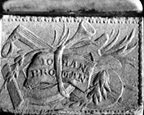 |
 |
_2.png) |
_2.png) |
| Johan Broman, harpsichord 1756 (MTM N83.118) |
Jonas Ekengren organ Östra Ryd 1781 |
Pehr Lundborg, clavichord 1772 (MTM M1440) |
Pehr Lundborg, clavichord 1794 serial no. 451 (MTM N57.100) |
 |
 |
 |
 |
| Pehr Lindholm clavichord GäM 11000, SF-ÅSHM 3765 |
Pehr Linholm clavichord 1793? (MTM X5742) |
Pehr Lindholm klavikord 1793 (SR) |
Mathias Petter Kraft clavichord, not dated (MTM N37.862) |
 |
 |
 |
|
| Phillip Jacob Specken (d.1762), clavichord, frequently used also by his successor Gottlieb Rosenau (d. 1789?) |
Johann Bartholomaeus Oppermann, clavichord Hamburg 1747 |
Anon. clavichord Hamburg (MTM N121.222) |
|
The heraldic lily
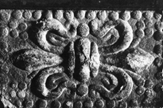 |
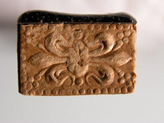 |
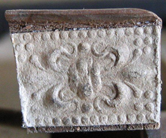 |
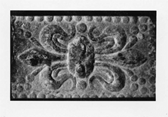 |
| Johan Petter Roos, clavichord 1726 (SF JM 384) |
Daniel Stråhle, clavichord 1738 (MTM N145.765) |
Gustaf Gabriel Wolthersson, clavichord 1744 (Stora Skedvi hbgd 549) |
Jonas Gren & Stråhle, organ Bunge 1756 and others |
_2.png) |
 |
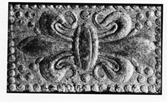 |
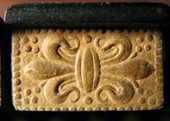 |
| Anders Wåhlström, clavichord (1752) (Hållnäs lm Hs 968 |
Carl Wåhlström, organ Svinnegarn 1769 |
Anders Rangström (d.1801), clavichord (frequently used) |
Jonas Ekengren, Fresta 1788, organ positive MTM M564 |
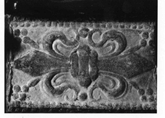 |
 |
 |
|
| Olof Schwan, organ Ängsö 1781 |
Pehr Schiörlin (d. 1815), organs and clavichords (frequently used) |
H Müller, clavichord Hamburg 1769 (MTM X5225) |
|
Variants of the heraldic lily
-King-of-Sweden.png) |
-Koeping-00.538.png) |
.png) |
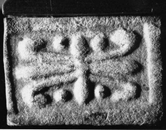 |
| Anon. clavichord "King of Sweden" (prev. MTM N70.890) |
Anon., attr. to HA Hass Hamburg (KM 538) |
Eric Löfberg, clavichord 1753 (Ängsö slott) |
Carl Petter Lenning, clavichord 1765 (SF NM 4470) |
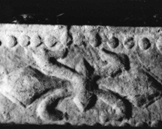 |
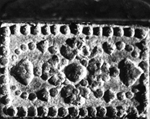 |
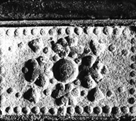 |
 |
| Jonas Ekengren, organ Hilleshög 1773 |
Olof Hedlund, organl Övermark Finland 1747 |
Peter Forsman, clavichord ca 1760 (VM 21465) |
Pehr Niclas Forsberg, organ Teda 1785 |
 |
 |
|
|
| Nils Söderström, organ Dala-Husby 1783 |
Anon. clavichord (MTM X4002) |
|
|
Other patterns
_2.png) |
 |
.png) |
_2.png) |
Anon. clavichord c. 1700 (MTM N284.765) |
Elias Wittig (d. 1716), organ Nyed 1707 (angel´s head) |
Johann Christoph Fleischer, clivichord 1722 (SMF IKL 046, photo SMF) |
Johan Petter Roos, clavichord 1731 (MMk 3929) |
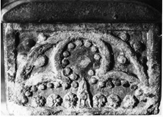 |
 |
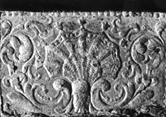 |
 |
| Anon. clavichord (GM 6228) |
Lars Kinström (d.1763), harpsichord (BM.1518) |
Johan Broman, "shell", frequently used |
Mathias Petter Kraft, klavichord 1792 serial no. 435 (MTM M3494) |
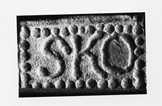 |
 |
|
|
| Pehr Lund, organ Skokloster 1804 |
Anders Svanström, organ Härkeberga 1813 |
|
|
|
|

